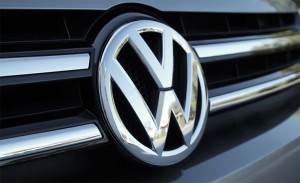Volkswagen has been given the go-ahead to repair more than 58,000 late-model vehicles sold in the U.S. using its 2.0-liter turbodiesel engine, the first time a fix has been authorized by regulators in both the U.S. and California.
Both the U.S. Environmental Protection Agency and the automaker claim the remedy will maintain current fuel economy numbers, as well as the performance and reliability of the affected models. VW had built a reputation for delivering good mileage and performance with its diesels but in September 2015, the government revealed that the maker rigged emissions tests to achieve those additional goals.
“This is an important step,” the automaker said in a statement. “We will now notify eligible customers in the United States that they can receive phase one of this modification at dealerships free of charge as soon as possible.”
The repairs will be made at no charge to owners, according to VW and the EPA, but it will require owners to return to showrooms twice.
“The approved modification requires both software and hardware replacement, and will take place in two phases,” according to an EPA statement. “The first phase involves a software change that is available to customers now. The second phase involves further software changes as well as hardware changes that are not yet available.”
As part of the second phase, said the EPA, VW will again update software, while also installing “a new diesel particulate filter, diesel oxidation catalyst and NOx catalyst.”
The repair only covers so-called Gen-3 turbodiesels used on Volkswagen products sold in the U.S. during the 2015 model-year. Earlier version of the 2.0-liter diesel used different methods to handle emissions controls. What they all had in common was a so-called “defeat device,” software able to detect when the vehicles were undergoing emissions test and temporarily adjust engine controls to bring pollution levels into compliance with government standards.
(VW reaches diesel deal, but judge warns owners not to strip cars before buyback. Click Here for the story.)
In real-world operation, those vehicles could produce up to 40 times the government’s target for smog-causing oxides of nitrogen.
“Volkswagen continues to work closely with EPA and CARB to reach an agreement on approved emissions modifications for other affected 2.0L TDI vehicles as quickly as possible,” the VW statement added.
In all, about 475,000 vehicles using that engine were rigged to cheat on emissions tests. Another 80,000 with a more upscale, 3.0-liter turbodiesel were also illegally programmed.
Under a June settlement with the EPA, the U.S. Justice Department and other federal and California regulatory bodies Volkswagen agreed to spend $14.7 billion. Of that, about $10 billion was earmarked to either buy back those vehicles or repair them, while also giving all owners financial compensation of up to $10,000, depending upon the age of their vehicles.
(VW strikes deal on bigger diesel engines. For more, Click Here.)
Owners of the 2015 models – including the VW Beetle, Beetle Convertible, Golf, Golf SportWagen, Jetta and Passat, as well as the Audi A3, now have a choice of getting their vehicles repaired or accepting the buyback. Either way, they will still receive compensation.
A VW spokesperson told TheDetroitBureau.com that the carmaker now hopes to come up with fixes for the other two versions of the 2.0-liter diesel. And it is confident, she said, a repair will be found for the 3.0-liter turbodiesel which has been used in both VW and Audi products, as well as some sold by the sibling Porsche brand.
VW last month reached a nearly $2 billion settlement covering those models. Owners of about 20,000 vehicles will get the choice of a buyback or a repair – if one can be found. The maker expects to be able to repair at least 60,000 more recent vehicles using the 3.0-liter diesel, so the settlement did not include a buyback provision.
Even with the latest announcement, the diesel scandal is far from finished. VW last autumn reached a settlement providing compensation for U.S. dealers who lost sales and showroom value. Negotiations are still underway for shareholders who claim to have lost investments as a result of the diesel revelations.
(Has VW put the nail in the coffin for U.S. diesels? Click Here.)
Meanwhile, criminal investigations are active in a number of countries, including the U.S. and Germany. One VW engineering manager pleaded guilty last year and was expected to testify against others involved in the engine rigging. But former VW CEO Martin Winterkorn is among top managers also under investigation.

